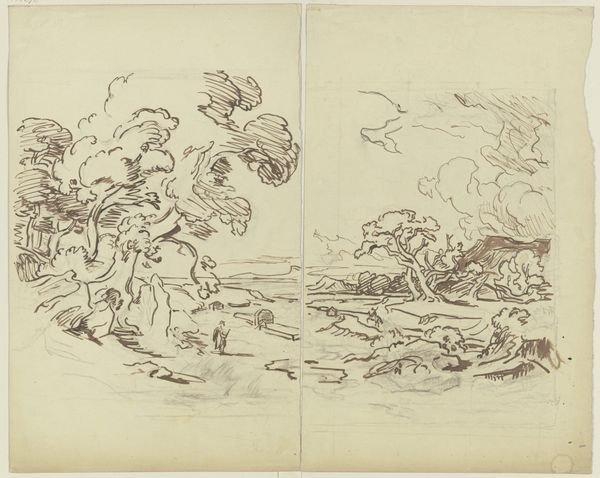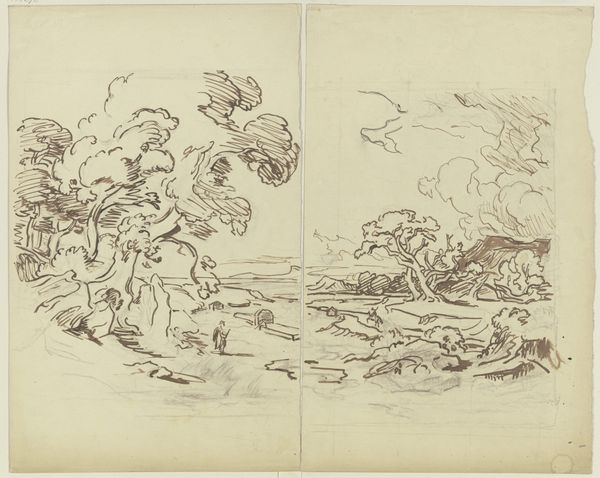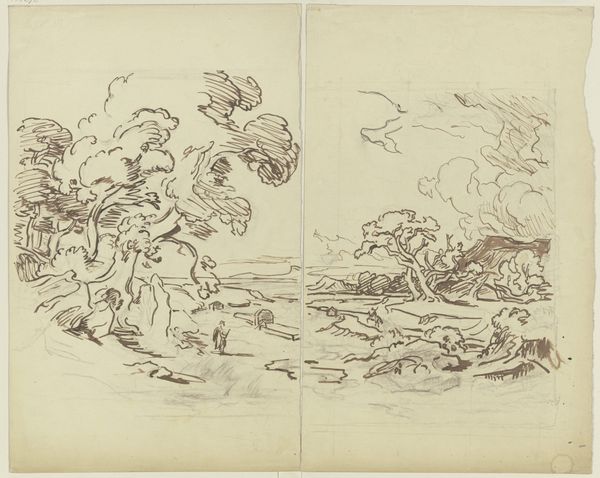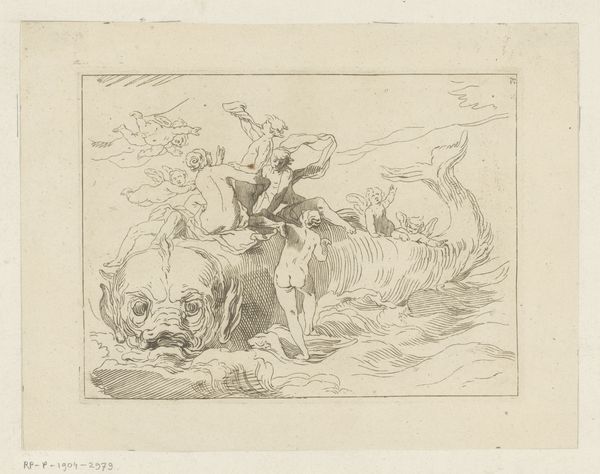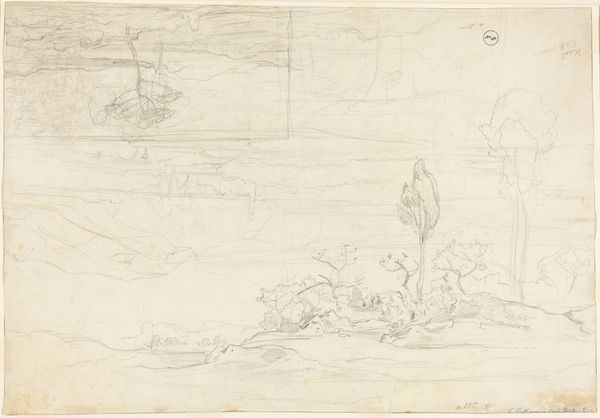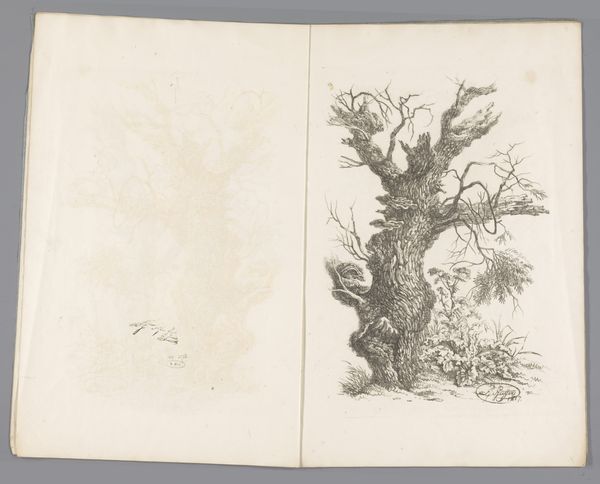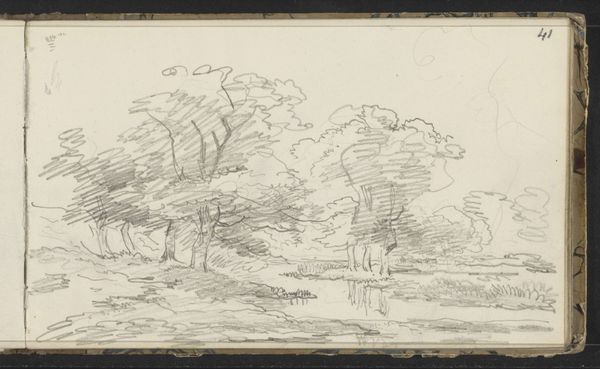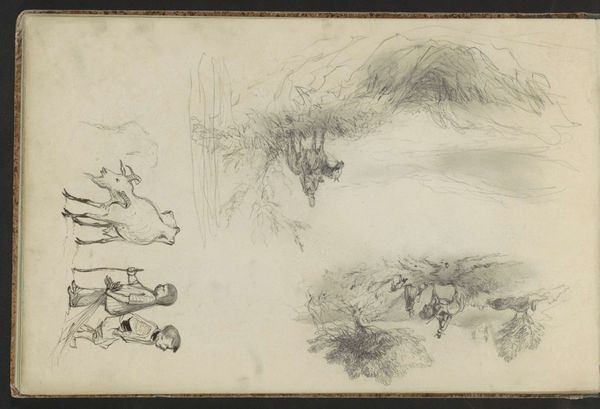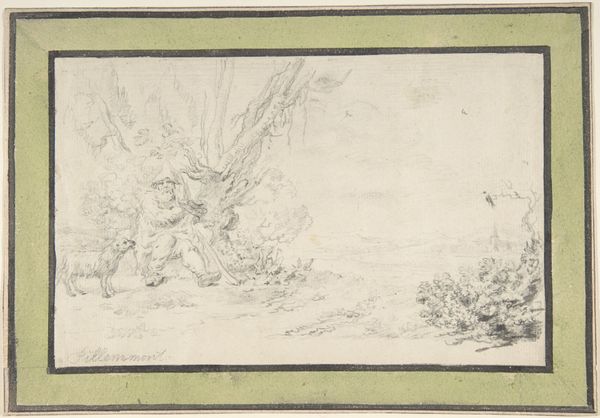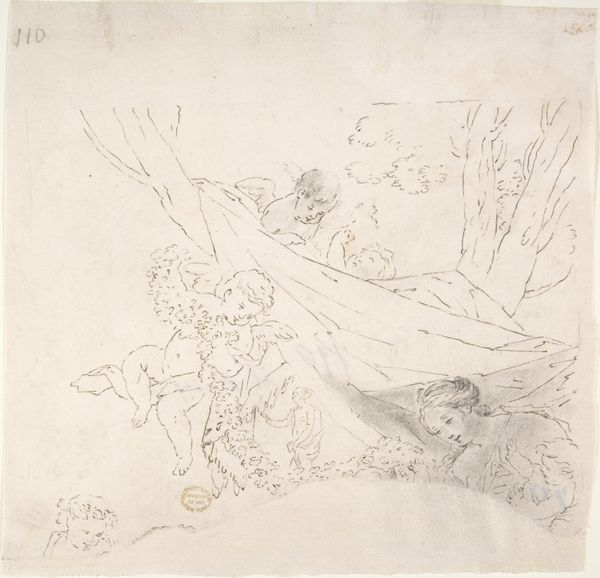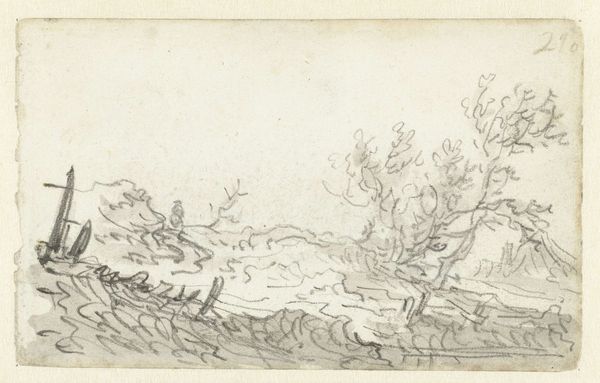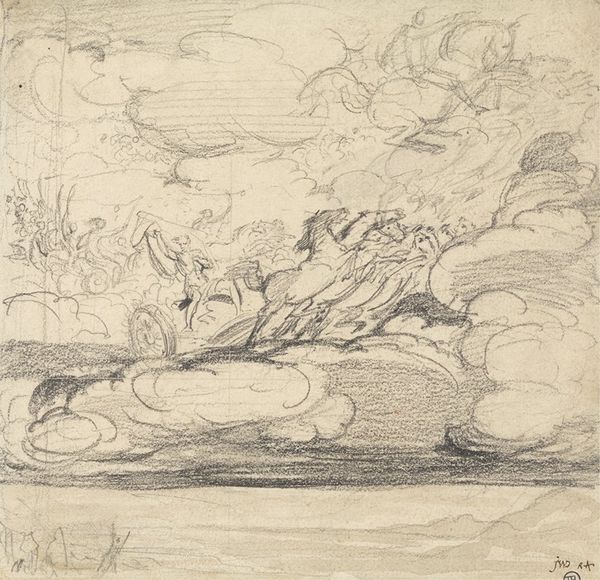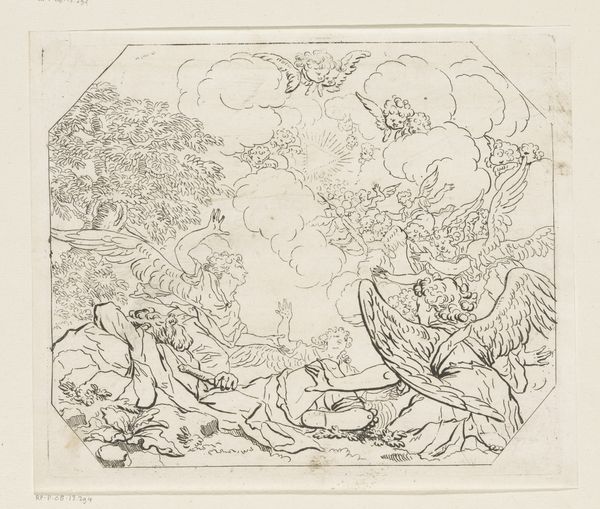
drawing, ink
#
drawing
#
landscape
#
figuration
#
ink
#
line
Copyright: Public Domain
Curator: Before us we have Friedrich Metz’s "Heroische Landschaft mit Hirten" held here at the Städel Museum. A work rendered in ink, it exemplifies his skill with line and form to express space and figuration, wouldn’t you agree? Editor: Right away, it reminds me of glancing at my notebook in high school, doodling heroic ideas in the margins! But beyond my own associations, there's a dreamlike quality, with a strange, sweeping romanticism—it seems unfinished but intentionally so, capturing the suggestion of heroism rather than its full display. Curator: Absolutely. I think the heroic landscape became very important around this period because art patrons found themselves needing heroic figures or forms in their art to somehow tie themselves to the power and prestige that these paintings represented. Editor: Power feels a little… fraught to me when looking at it. The figures in this landscape are small, almost incidental compared to the vastness suggested. The “heroism” feels like something swallowed by nature, a question posed rather than a statement made. Do you get that sense of precariousness, or is that just me projecting? Curator: Not projecting, necessarily. The composition leads our eyes into deep space, yet these marks do not fully evoke classical forms of architectural or natural perfection—I think the incompleteness heightens a tension between those conventions. In some ways it is an early modern landscape—questioning the value and place of mankind and the power that nature has in contrast. Editor: I wonder if people then, as now, looked to these landscapes not to reinforce hierarchies, but for some sort of escape? A visual promise that even amidst social upheaval, there was still somewhere… else? Curator: Escape certainly became a popular notion alongside this type of landscape painting. This art becomes more than a symbol of cultural identity; it becomes something transportive. Editor: Right—less an endorsement of a life, more an invitation. I feel almost as if Metz is proposing a conversation that perhaps even he doesn’t have an answer to. I suppose great art does that; proposes rather than resolves. Curator: Precisely. Hopefully this brief encounter inspires listeners to spend more time here reflecting on Metz's proposal and maybe even pose their own questions about what makes up a heroic landscape today.
Comments
No comments
Be the first to comment and join the conversation on the ultimate creative platform.
